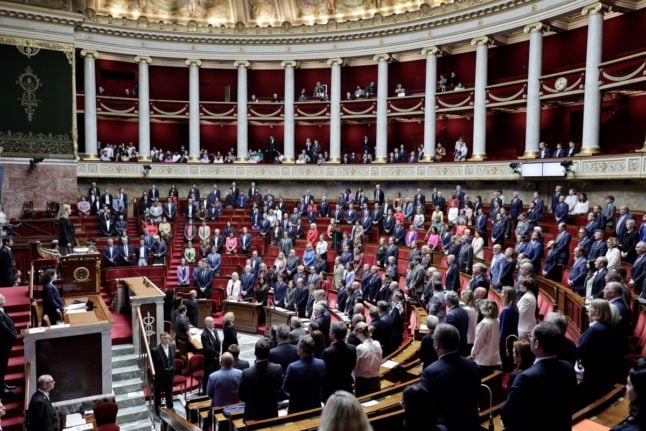Geoffroy Lejeune, just 34, was unveiled last week as the new editor of the influential Journal du Dimanche (JDD), which is the country’s only stand-alone Sunday newspaper, with weekly sales of around 140,000.
News of his nomination by owner Lagardere, recently acquired by conservative billionaire Vincent Bolloré, prompted a mass walkout from staff last week which has paralysed the paper and its website – no edition of the paper appeared on Sunday.
“Everyone is in shock, stunned,” one journalist at the paper told AFP on condition of anonymity ahead of the official announcement on Friday.
Lejeune, who is close to several senior far-right political figures, “expresses ideas that are the opposite of the values that the JDD has carried over the last 75 years,” the paper’s union of journalists said in a statement.
Culture Minister Rima Abdul-Malak joined politicians on the left as well as media freedom group Reporters without Borders (RSF) in expressing concern about Lejeune being handed such an important media platform.
“Legally speaking, the JDD can become what it wants, as long as it respects the law,” Abdul-Malak wrote on Twitter on Sunday. “But for our republic’s values, how can you not be alarmed?”
Lejeune’s nomination was described as a “provocation and the demonstration that the far-right is now installing itself calmly in the media” by eight former editors of the newspaper.
They expressed outrage that the identity of the paper was being “erased” by Bolloré.
Lejeune was until recently editor of the far-right weekly Valeurs Actuelles whose profile he helped raise through provocative headlines and caustic attacks on the country’s politicians and intellectuals.
In 2019, around 400 academics criticised the publication in a joint letter after a vicious and highly personal diatribe against Benjamin Stora, a renowned historian of French colonial history who viewed the article as anti-Semitic.
The magazine has also repeatedly targeted Jewish financier George Soros, calling him the “billionaire plotting against France” in a 2018 frontpage headline.
In 2021, the publication was found guilty of racist hate speech after it published a fictional story and cartoons depicting one of the country’s most prominent black MPs as a nude slave in chains and an iron collar.
Lejeune endorsed far-right media commentator Eric Zemmour during his campaign for the presidency last year and is a close friend of Marion Marechal, the niece of far-right patriarch Jean-Marie Le Pen.
Zemmour put the racist conspiracy theory the “great replacement theory” – which posits that white French people are being deliberately replaced by immigrants – at the centre of his error-strewn bid for presidency.
Immigration, crime, alleged left-wing media bias, “woke” teachers, “anti-white” ethnic minorities, as well as the spread of Islamism were common subjects covered by Valeurs Actuelles under Lejeune.
“Save white heterosexual 50-year-old men,” read one of his last front-page headlines in May.
Bolloré, a conservative Catholic from northwest France, has been gradually expanding his empire to take in TV channels, the magazine Paris Match, radio station Europe 1 and latterly the JDD.
After acquiring news channel iTele, he provoked a record strike of 31 days in 2016, gutted most of the staff and turned it into a conservative platform known as CNews, dubbed “France’s Fox News” by critics.
“Bolloré is a specialist in taking an axe to media that he buys,” Christophe Deloire, secretary general of RSF, wrote on Twitter.
Lejeune is also one of a number of journalists, commentators and intellectuals who have helped move hardline views on immigration and Islam into the media mainstream, mirroring the shift in the country’s politics.
Far-right leader Marine Le Pen secured her highest ever score in the second round of last year’s presidential election (41.5 percent) and one poll in April showed she would win if the vote were run again.
Many politicians privately admit Le Pen could be France’s next president, while public opinion surveys show that her – and Lejeune’s – views on immigration are broadly supported by most French people.
A poll by the BVA Opinion group for RTL radio in May showed that two-thirds of respondents were “worried” about immigration and the same proportion thought there were too many immigrants in the country.
However, on polls about French voters’ main concerns – immigration trails a long behind more concrete concerns such as the cost of living, healthcare and education.



 Please whitelist us to continue reading.
Please whitelist us to continue reading.
Member comments